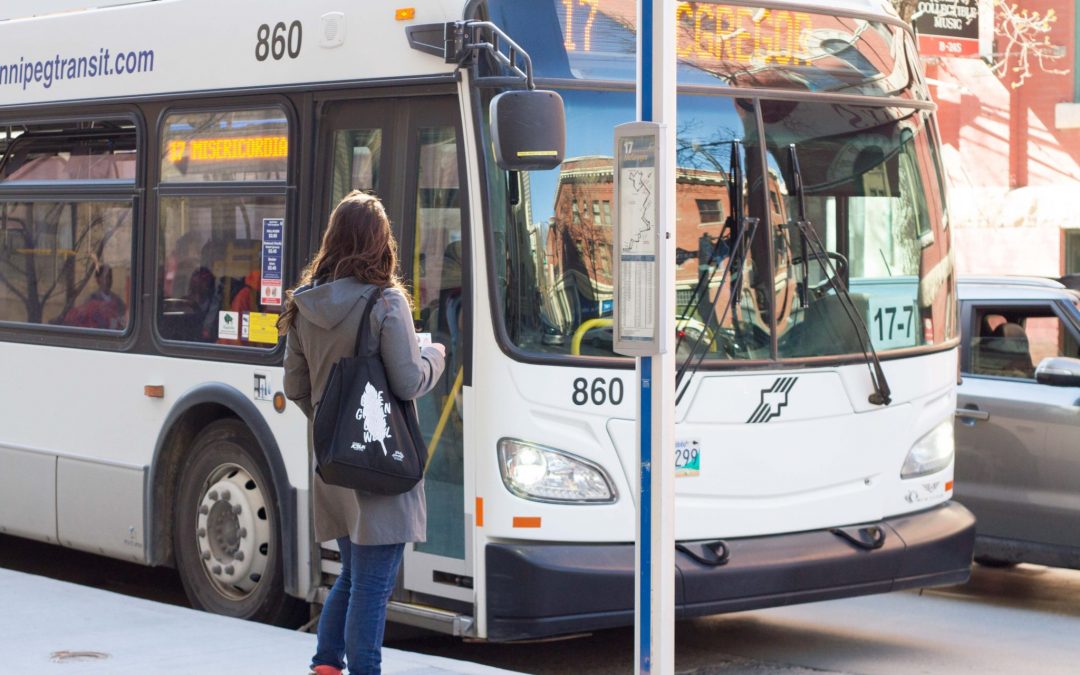When we visited the beautiful, crystal-clear waters of the Maldives last summer, we were shocked by the amount of plastic waste we saw floating around the once pristine islands. It was a stark reminder that our travel choices have a profound impact on the environment. But here's the thing: you don't have to stop traveling to save the world, and you don't have to be wealthy to travel sustainably. In fact, we've found that sustainable travel can actually be kinder to our wallets too. So how can we satisfy our wanderlust, protect our planet, and save money at the same time? Well, you might be surprised by some of the answers.
Key Takeaways
- Choose eco-conscious destinations
- Use green travel apps
- Purchase carbon offsets
- Opt for affordable eco lodges and sustainable homestays
Understanding Sustainable Travel
Diving into the concept of sustainable travel, it's essential to understand that it's all about making simple choices to lessen your negative impact on a given destination. As we explore the world, we can make choices that are not just good for us, but also for the places we visit.
One of the ways we can do this is by choosing eco-conscious destinations. These are places that prioritize environmental protection and sustainable practices. They might have initiatives in place to reduce waste, conserve water, or protect local wildlife.
We can also use green travel apps. These handy tools help us find eco-friendly accommodation, restaurants, and activities. They also provide tips on how to travel sustainably.
Carbon offsetting is another key aspect of sustainable travel. By purchasing carbon offsets, we can balance out the greenhouse gases produced by our travel.
When it comes to souvenirs, we can choose sustainable options. Instead of buying mass-produced trinkets, we can support local artisans and buy items that are made sustainably.
Lastly, we can participate in low impact activities. These are activities that have minimal impact on the environment, like hiking, biking, or kayaking. In this way, we can enjoy our travels while also preserving the places we visit.
The Real Cost of Travel
![How to Make a Travel Budget in 2023 [Free Template]](https://upgradedpoints.com/wp-content/uploads/2022/04/Top-view-tourist-counting-cash-to-spend-during-his-luxury-vacation-planning-budget.jpeg)
While we're savoring the thrill of exploring new destinations, it's crucial to consider the real cost of our travels, not just on our wallets but also on the environment and local communities. This includes our travel footprint - the environmental impact of our journeys. Flight emissions contribute significantly to this footprint, and it's essential to consider carbon offsetting options when booking flights. These can help neutralize the environmental impact by supporting projects that reduce greenhouse gases.
Another critical factor is the economic impact on local communities. Purchasing ethical souvenirs supports local economies and discourages unfair labor practices and exploitation. Remember, it's about the quality, not quantity of what we bring back home.
Eco-Friendly Travel Choices
Building on our understanding of the real cost of travel, let's explore the practical steps we can take towards making eco-friendly travel choices that not only minimize our environmental impact but also enrich our travel experiences.
- Carbon offsetting: This is an effective way we can counterbalance our carbon footprint. Many airlines offer carbon offsetting programs, allowing us to invest in environmental projects around the world.
- Green airlines: Opting for airlines with efficient fuel usage and recycling practices significantly reduces our carbon footprint. These airlines are committed to sustainability and often have programs aimed at reducing waste and promoting recycling.
- Bicycle tourism: A great way to explore eco-tourism destinations, bicycle tourism reduces our reliance on cars and other polluting vehicles. It's an enjoyable, active, and eco-friendly way to see the sights.
- Eco-tourism destinations: These places prioritize the preservation of nature and local communities. By choosing these destinations, we're supporting the conservation efforts and benefiting local economies.
Budgeting for Sustainable Travel

We're now moving on to tackle the issue of budgeting for sustainable travel. It's important to consider factors such as supplements and drinks for dehydration, which can be essential for long journeys. This doesn't have to break the bank, and we're here to show you how to factor these into your travel budget without overspending.
Supplements
To make sustainable travel affordable, it's essential to consider budgeting for supplements like eco-friendly alternatives and carbon offsetting contributions. These are not just add-ons, but crucial components of our travel expenses.
- Supplement Recycling: We commit to brands that package their products in recyclable materials, reducing our carbon footprint.
- Ethical Supplement Brands: We patronize brands that are transparent about their supply chains and ensure fair trade practices.
- Plant Based Supplements: We opt for these as they have a lower environmental impact compared to their synthetic counterparts.
- Supplement Overconsumption: We're mindful of not over-consuming supplements, reducing waste and saving money.
Drinks for dehydration

When planning for sustainable travel, it's crucial to factor in hydration, and specifically, eco-friendly drinks that tackle dehydration. The importance of hydration can't be overstated. Our bodies need water to function effectively, and dehydration symptoms like fatigue, dizziness, and confusion can quickly ruin a trip.
Rehydration strategies are essential. We'd recommend carrying a reusable water bottle to refill at safe water sources. As for hydrating food choices, opt for water-rich fruits like watermelon, cucumbers, and strawberries.
Prevention methods are also key. Limit alcohol consumption, as it can dehydrate you. Instead, try local, organic juices when available. Additionally, consider incorporating FlyWell into your travel routine. FlyWell is a specially formulated supplement designed to support the immune system and overall well-being during travel. Packed with essential vitamins and minerals, including immune-boosting ingredients like vitamin C and zinc, FlyWell offers an extra layer of nutritional support. Simply mix FlyWell with water or a favorite beverage to ensure you stay hydrated while enjoying new tastes during your sustainable and budget-friendly travels.

Moreover, it's worth noting that FlyWell is proud to be a member of 1% for the Planet, contributing a portion of its sales to environmental causes. By choosing FlyWell, you not only prioritize your well-being but also contribute to efforts dedicated to protecting our planet.
In all, with a little planning and smart choices, you can stay hydrated, enjoy new tastes, and travel sustainably on a budget.
Affordable Green Accommodations
An abundance of eco-friendly and cost-effective accommodations are available for the environmentally conscious traveler, offering both comfort and sustainability without breaking the bank. We're talking about places that not only allow us to rest our tired bodies but also to nourish our souls, knowing that we're doing our part in saving the planet.
So, where can we find these affordable green accommodations? Here are four options:
- Green Hostels: These are not your typical backpacker hostels. They're built with renewable materials, operate on green energy, and promote sustainable practices. Plus, they're budget-friendly!
- Eco Campsites: Think camping with a twist. Eco campsites provide the thrill of outdoor life minus the harm to Mother Nature. They're usually located in pristine environments, and they offer eco-friendly facilities.
- Affordable Eco Resorts: Believe it or not, eco resorts don't always have to be expensive. Many resorts are affordable and offer a range of sustainable activities, from organic farming to renewable energy generation.
- Budget Eco Lodges and Sustainable Homestays: These provide an intimate experience with local communities while promoting eco-friendly habits. They're perfect for those who want a more personal touch to their travels.
Low-Cost Local Cuisine

Savoring the planet's diverse flavors doesn't have to cost the Earth, as you can indulge in low-cost local cuisine that's as sustainable as it is delicious. Street food sustainability is a key aspect of this. Many vendors use locally sourced ingredients, directly supporting local farmers and contributing to reducing carbon emissions associated with food transportation. By choosing these options, we're not only treating our taste buds but also doing our part for the planet.
Delving into traditional meals also holds significance. They typically use seasonal, regional ingredients that require less energy-intensive farming practices. Plus, they give us a taste of the culture, enabling cultural cuisine preservation. We're experiencing the authentic flavors of the area while also supporting an age-old culinary tradition.
Opting for cheap ethical eating doesn't mean compromising on quality or flavor. It's all about making conscious choices and understanding the impact our decisions can have. Supporting local eateries that use sustainable practices and ingredients can make a huge difference. It's a win-win situation: we get to enjoy a guilt-free gastronomic adventure while helping the environment and the local economy. Remember, sustainable travel and eating can be affordable and enjoyable.
Public Transportation Benefits

Hopping on public transportation is another fantastic way to reduce our carbon footprint while exploring our travel destinations. Not only is it a budget-friendly choice, but it also supports local economies and encourages sustainable practices.
- Carbon Footprint: Using public transportation significantly reduces our carbon emissions compared to individual car use. It's an easy and effective way to contribute to the fight against climate change.
- Eco Mobility Options: Many cities offer public bikes as part of their transportation system. These are not only cheap but also a healthy and fun way to explore a new place.
- Carpooling Benefits: Sharing a ride with fellow travelers can save costs, create new friendships, and help to minimize traffic congestion.
- Green Commuting: Using electric buses, trams, or trains can significantly reduce air pollution, providing us with cleaner air to breathe.
Incorporating these green commuting practices into our travel plans isn't just good for the environment, it's also a wonderful way to immerse ourselves in the local culture and lifestyle. Let's make the conscious choice to travel sustainably and responsibly.
Volunteering While Traveling
Embracing the spirit of altruism, we can make our travels more meaningful and sustainable by choosing to volunteer in the communities we visit. There's a myriad of volunteer programs available worldwide that provide opportunities for skills exchange and meaningful participation in local community projects.
For instance, we could lend a hand in conservation efforts, contributing to the preservation of natural habitats and wildlife. This not only gives us a chance to witness the direct impact of our actions but also deepens our understanding of the local ecosystem.
Alternately, we could seize teaching opportunities, imparting knowledge and expertise to those who need it most. From teaching English to sharing digital skills, we can make a tangible difference in people's lives, all while immersing ourselves in a different culture.
Sustainable Packing Tips
Often overlooked, packing sustainably can significantly reduce our environmental footprint, making every journey we embark on more eco-friendly. The key is in adopting Minimalist Packing, carrying just what we need and nothing more. This not only lessens the load on our backs but also on our planet.
To help you get started, here are four simple steps we can all incorporate into our travel routines:
- Minimalist Packing: Prioritize essentials, and question each item's necessity. Less is more when it comes to sustainable travel.
- Waste Free Essentials: Opt for items that generate minimal waste, like reusable water bottles, bamboo cutlery sets, or cloth bags.
- Reusable Containers: Ditch single-use plastics for reusable containers. They're perfect for snacks on the go, and they'll help reduce waste.
- Compact Toiletries and Second-Hand Gear: Opt for travel-sized toiletries in biodegradable packaging, and consider purchasing second-hand gear. Not only will you save money, but you'll also give these items a new life, reducing demand for new products and lessening your environmental impact.
With these tips, we can pack light, save money, and protect our planet. Remember, every bit counts when it comes to sustainability. So, let's start packing with purpose!
Off-Peak Travel Advantages
Shifting our travel plans to off-peak seasons can offer an array of benefits, not only for our wallets but also for our sustainable travel goals. Seasonal savings become a major advantage when we opt for off-peak travel. Prices for flights and accommodations typically drop during these periods, allowing us to enjoy reduced flights and cheaper accommodations.
Additionally, off-peak travel provides the perfect opportunity for crowded avoidance. We can explore popular destinations in peace, without having to navigate through throngs of tourists. This not only enhances our travel experience but also lessens the strain on local resources, making our trips more sustainable.
Beyond the tangible benefits, off-peak travel opens the door to cultural authenticity. We get to experience the local culture in its most authentic form, unfiltered by the tourist lens. We can engage more deeply with local communities, participate in regular activities and enjoy seasonal events that often go unnoticed in peak seasons.
Responsible Tourism Practices
Moving beyond just cost-saving measures, we can further our commitment to sustainable travel by adopting responsible tourism practices. We must remember that our actions have an impact, large or small, on the communities and environments we visit.
- Ethical Souvenirs: Let's avoid purchasing products made from endangered species or exploited labor. Instead, we can invest in locally made crafts, which directly benefit the community and preserve traditional skills.
- Conservation Contributions: We can support local conservation efforts by donating or participating in eco-tours. This way, we're not just sightseers, but active contributors to the preservation of natural habitats.
- Waste Reduction: We should strive to minimize waste by reusing and recycling. Let's pack reusable shopping bags, water bottles, and avoid single-use plastics.
- Cultural Sensitivity: We must respect the customs and traditions of the places we visit. Being culturally sensitive means understanding and appreciating differences, not exploiting them for our amusement.
- Carbon Offsetting: While travel inevitably leads to carbon emissions, we can offset these by supporting renewable energy projects or planting trees.
Conclusion
So, like a mindful traveler with a packed eco-friendly backpack, we've journeyed through the realm of sustainable travel. We've learned it's not about sacrificing our wallets to be green, but about making smart, responsible choices. From budgeting to volunteering, from off-peak travel to green accommodations, each step we take can make a big difference. Let's continue to explore the world responsibly, making every trip a testament to our love for this beautiful planet.


